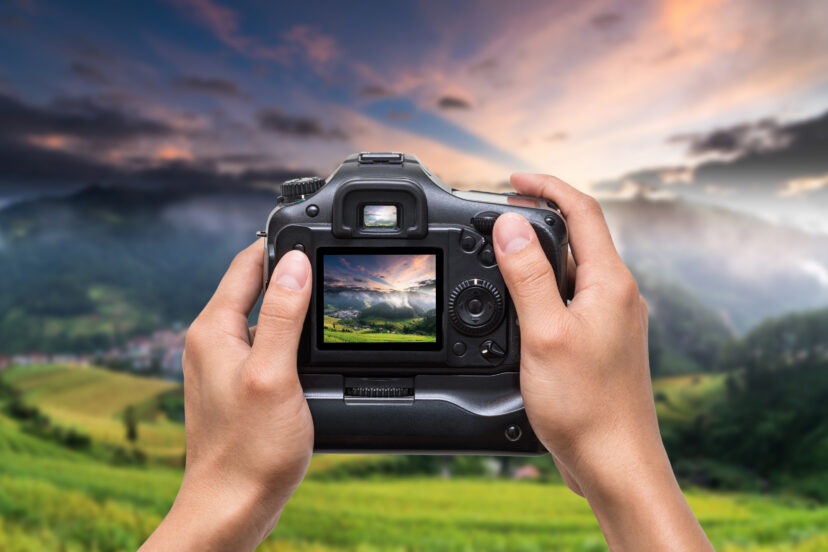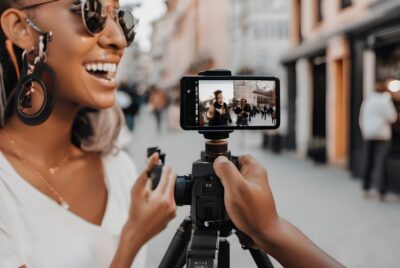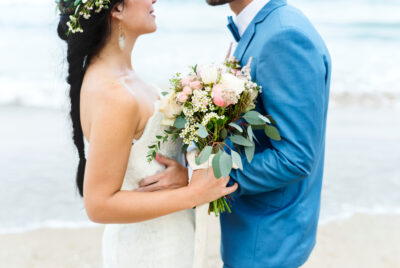Digital Photography: The Modern Lens of Creativity
Photography has never been more exciting. We’ve gone from developing film in a darkroom to snapping jaw-dropping shots with a smartphone. As someone who lives and breathes photography, digital has completely changed the game for me. Whether you’re a hobbyist, a budding influencer, or just love freezing life’s best moments, digital photography gives you the power to tell stories like never before.
Why Digital Photography Matters in Today’s World
Accessibility and Affordability
Remember when photography meant pricey gear, expensive film rolls, and darkroom chemicals? Yeah, not anymore. Now, anyone with a smartphone or a basic point-and-shoot can start capturing their world. That’s the beauty of digital photography—it’s democratized creativity. You don’t need a studio or a fancy lens to get started, just a curiosity to learn and a camera to play with.
The Instant Gratification Factor
This one’s a biggie. With digital, you get to see your shot immediately. That feedback loop is a learning goldmine. Messed up the exposure? Change your settings and shoot again. It’s like having a teacher in your pocket 24/7.
A Quick Look at the History of Digital Photography
The First Digital Camera
The first digital camera was invented by Steve Sasson at Kodak in 1975. It was a clunky prototype that stored black-and-white images on a cassette tape—yep, tape. The resolution? A whopping 0.01 megapixels.
From DSLRs to Mirrorless
By the early 2000s, DSLRs took over. Then came mirrorless cameras, offering lighter bodies, electronic viewfinders, and lightning-fast performance. Now, even some smartphones can compete with entry-level DSLRs!
Digital vs. Film Photography: A Modern Comparison
The Cost Factor
Film photography can be romantic, sure—but it’s also pricey. Each shot costs money. Digital? Take 500 photos in a day if you want. No guilt.
Flexibility and Workflow
Digital photography offers unmatched flexibility. Want to shoot in color and convert to black and white later? Easy. Missed focus? Zoom in and check instantly. The post-processing options are endless too.
Image Quality: The Debate Continues
Film lovers argue for dynamic range and texture, while digital photographers swear by clarity and resolution. Honestly, it depends on what you’re going for. I say embrace both worlds if you can!
Must-Have Digital Photography Gear
Camera Types: DSLR, Mirrorless, and Compact
-
DSLRs: Great for control and quality.
-
Mirrorless: Lightweight and cutting-edge.
-
Compacts: Perfect for travel or quick shots.
Each has its place, depending on your needs and style.
Lenses: Why They Matter More Than Your Camera
People often obsess over cameras, but let me tell you—lenses are the real MVPs. A great lens on a mid-range body can outperform an expensive camera with a kit lens. Invest in glass, not just gear.
Accessories That Elevate Your Shots
Think tripods, ND filters, external flashes, and reflectors. These little tools can turn a good photo into a great one. Trust me, they’re worth it.
Mastering Digital Photography: Key Tips for Beginners
Learn the Exposure Triangle (ISO, Shutter, Aperture)
It sounds geeky, but once you understand this, the creative floodgates open. Want motion blur? Slow shutter. Need low light shots? Boost ISO (but not too much).
Understand Composition (Rule of Thirds, Framing, Leading Lines)
A good photo isn’t just about sharpness—it’s about storytelling. Composition guides the viewer’s eye. Study it, practice it, break it.
Practice Lighting Techniques
Photography is literally painting with light. Learn natural light, experiment with golden hour, and don’t shy away from shadows.
>>> Today’s deals for cameras on Amazon CLICK HERE <<<
Editing: The Digital Darkroom
Why Post-Processing Matters
Editing isn’t cheating—it’s finishing. Think of it like seasoning a dish. You’ve cooked the meal with your camera, now you’re adding the flavor.
Top Tools: Lightroom, Photoshop & Mobile Apps
-
Lightroom: Best for organizing and batch editing.
-
Photoshop: Go here when you need to get surgical.
-
Snapseed, VSCO, Lightroom Mobile: Great for editing on the go.
Digital Photography Styles and Genres
Portrait
Get close, focus on the eyes, and make your subject feel at ease. That’s half the magic.
Landscape
Use a tripod, shoot at sunrise or sunset, and play with wide angles. Nature rewards patience.
Street and Documentary
Blend in, observe, and wait for life to unfold. Be quick, but don’t rush.
Product and Commercial
Lighting is everything here. Clean backgrounds, sharp focus, and good editing make all the difference.
Common Mistakes to Avoid in Digital Photography
Overediting
Yes, Lightroom sliders are fun. But don’t go overboard. Overprocessed images lose their soul.
Relying Too Much on Auto Mode
Auto is great for quick moments, but manual control gives you intentionality. You’re the artist—own it.
The Future of Digital Photography
AI and Computational Photography
Cameras are getting smarter. Think auto-scene detection, facial recognition, and in-camera HDR. The line between photography and tech is blurring fast.
Smartphone Innovations
Some phones now have periscope lenses and night vision. We’re not just pocketing phones—we’re pocketing mini studios.
Conclusion
Digital photography is more than just clicking a button—it’s a craft, a passion, and a form of expression. We’re lucky to live in a time where the tools are so accessible and the possibilities so vast. Whether you’re just picking up a camera or diving deep into the professional world, the digital age gives you every reason to explore, experiment, and create. So go ahead—capture your world, one pixel at a time.
>>> Today’s deals for cameras on Amazon CLICK HERE <<<
FAQs
1. What’s the best camera for beginners in digital photography?
A mirrorless or entry-level DSLR like the Canon EOS Rebel or Sony Alpha series is great for starting out.
2. Is editing necessary in digital photography?
While not essential, editing helps refine your image and bring out its full potential. Even small tweaks can make a big difference.
3. How do I start learning digital photography?
Begin with the exposure triangle, composition basics, and practice regularly. YouTube and photography blogs are goldmines of free knowledge.
4. Can smartphones replace digital cameras?
For casual use, yes. For professional work, not quite yet—but they’re getting close!
5. Do I need expensive gear to be a good digital photographer?
Not at all. Great photos come from skill and creativity, not just equipment. Learn with what you have, and upgrade as needed.
Further reading
Check out our other relevant articles:
Mirrorless vs DSLR: Right Choice for Your Photography Needs?
.
To complement the article on digital photography, here are two authoritative resources that offer valuable educational guidance:
-
Digital Photography Tips and Tutorials for Beginners – Digital Photography School
This comprehensive guide provides a wealth of tutorials aimed at novice photographers. It covers essential topics such as the exposure triangle, camera settings, and post-processing techniques. The resource also includes downloadable guides and practical tips to help beginners enhance their photography skills.
-
Photography Basics: The Complete Beginner’s Guide – Photography Life
This beginner-friendly guide delves into the fundamental concepts of photography, including exposure, composition, and camera settings. It’s designed to help new photographers understand the technical aspects and develop a solid foundation in digital photography.
These resources are excellent starting points for anyone looking to deepen their understanding of digital photography and improve their skills.




